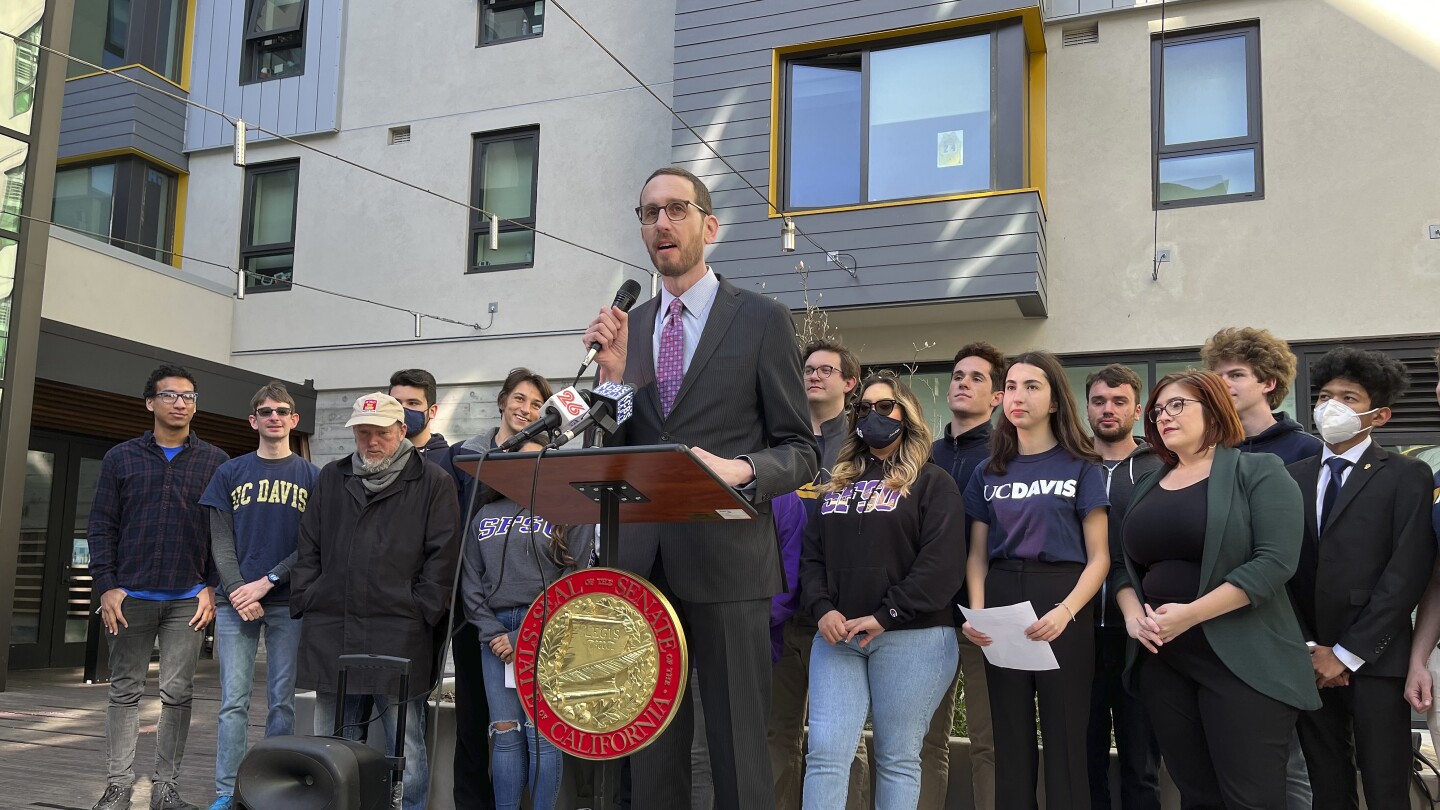Religious institutions and nonprofit colleges in California could soon turn their parking lots and other properties into low-income housing to help combat the ongoing homeless crisis, lawmakers voted on Thursday.
The legislation would rezone land owned by nonprofit colleges and religious institutions, such as churches, mosques, and synagogues, to allow for affordable housing. They would be able to bypass most local permitting and environmental review rules that can be costly and lengthy.
California is home to 171,000 homeless people — about 30% of all homeless people in the U.S. The crisis has sparked a movement among religious institutions, dubbed “yes in God’s backyard,” or “YIGBY,” in cities across the state, with a number of projects already in the works.



Never underestimate how much of the current crisis is caused by people who think or thought they were doing good. Prejudiced idiots with good intentions is the chorus in the song of history and something we must always be cautious not to fall into ourselves.
A lot of the people responsible for driving the “suburban experiment” in the 50s/60s would’ve self-identified as science-minded progressive urbanists in their day. They weren’t, but they probably genuinely thought they were. It was easy enough to not realize how awful their “science” was, how brutally regressive the policies were (especially for how they affected poor and vulnerable populations). They didn’t understand the environmental catastrophe it represented or the financial timebomb it set ticking. They thought they were building better cities for a brighter tomorrow that would benefit everyone.
Just because the effect was “I got mine, fuck you” does not mean that was the goal. A lot of these people didn’t even consider the downsides of these policies because there were vanishingly few major voices challenging them. Yeah, there was also a lot of capital interest involved and undeniably a lot of legitimate conspiracy (especially re: trolleycar destruction), along with a VERY stateist postwar news media that give us a bit of a chicken and egg problem, but the reality is that the zeitgeist was pretty seriously bought in.
That’s a big reason organizations like Strong Towns push so hard to try and upend the current development pattern – return cities to slower, organic, community-driven growth instead of large top-down projects. It’s because we often have terrible missteps when we jump in and start wildly building all the new hotnesses.
I’m a big fan of Strong Towns. I hope to never live in a city again, but I like what they’re doing and think it’s a step in the right direction. They certainly picked a giant hill to climb and glory to the brave!
If they actually get some change occuring they should pivot all their clout into outlawing realtors.
There’s no reason we necessitate, and then legislate, a need for a middle man.
An app and some transparency and all’s good. AI could erase that entire profession before dinner.
Call and schedule a cleaner and handyman. Get tax, land, and financial records. Print. Done.
I couldn’t live in the country. Too inconvenient with too few upsides. I’ve spent years in New Hampshire 35 minutes on the highway from everything (meaning a kmart and a massive Hannaford store and nearly zero locally run businesses) and it was awful. I hate every single trip needing to be a planned special occasion.
My city is an under 3 story mix of single and multifamily homes with a loose grid and a lot to do. A handful of medium sized buildings in a walkable downtown. Dead silent at night, busy in the dayz always somewhere open to grab something when late at night. That’s my view of a proper place to live. But property values are going insane and the exurbs are growing fast and bringing with them traffic congestion and stupid politics, so I know I’ll need to fight to keep it a great place in the future.